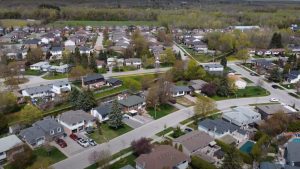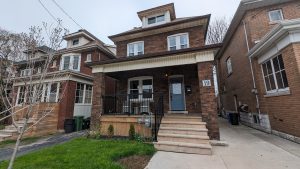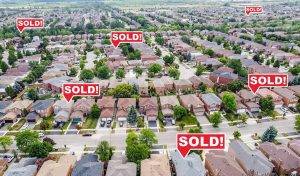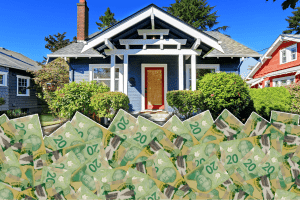If you are a property owner in Milton, Ontario, you must have heard of the buzz regarding the changing tax regulations in the town coming in effect in 202There are implications for those looking to sell their properties and move up to a bigger house. One of the important factors to consider is the capital gains tax.
Before delving into capital gains tax and how it affects you, let’s discuss why Milton is a sought-after place for property owners.
Why Invest in Milton Real Estate?
Milton, dubbed as one of the fastest-growing towns in the Greater Toronto Area, is a commuter’s paradise. Its proximity to major highways and public transportation make it an attractive destination for homebuyers who work in Toronto but prefer to live in a small town to raise their children.
According to statistics from the Canadian Real Estate Association (CREA), the average sale price of a house in Milton in March 2021 was $965,864, a 33.9% increase from March 2020. Milton has consistently been one of the most rapidly appreciating real estate markets in Canada.
With such a rapidly increasing market and booming community infrastructure, it’s essential to consider the tax implications of selling or up-sizing property in this area.
Capital Gains Tax in Milton
Capital Gains Tax (CGT) is a tax on the profit you make when selling a property. The Capital Gains Tax is calculated in Canada as 50% of the sale price’s equity. Simply put, the profit you make from the sale of your property is called equity. You can think of this as the difference between the fair market price of the property and what you initially paid for it (adjusted for inflation).
Suppose you bought a house in Milton for $400,000 and sold it a few years later for $700,000. The equity (profit) made from selling the house can be calculated as ($700,000- $400,000) = $300,000. The taxable capital gain will be 50% of the $300,000 profit.= $150,000.
However, there is good news for those up-sizing to a bigger house. According to the Canadian Revenue Agency (CRA), as of April 2021, individuals can apply for the principal residence exemption when selling their home. This exemption allows you to exclude the profit you make from selling the property from the taxable capital gain. You can exclude the profit made from selling your principal residence for each year you lived in your property from the capital gain.
This means that if you sell your first house, the profit can be excluded, so long as the property was designated as your primary residence for each year you owned it. However, there are important things to note when up-sizing.
Tax Implications When Up-Sizing
If you are moving up to a bigger house, there are tax implications to consider. Even if your previous property was designated as your primary residence, you will now have to pay tax on the profit you made when selling it.
To illustrate, suppose you lived in your first home for ten years, made a profit of $150,000, and bought a bigger house for $900,000. You would have to pay tax on half of the profit ($75,000) if you do not designate the new house as your primary with the CRA.
It’s crucial to note that the CRA requires you to live in the new residence for at least a year to establish it as your primary residence. After that year, you can sell and up-size again without paying tax on the profit.
It’s crucial to consult with your real estate agent and an accountant to determine the tax implications of your decisions, especially when considering up-sizing.
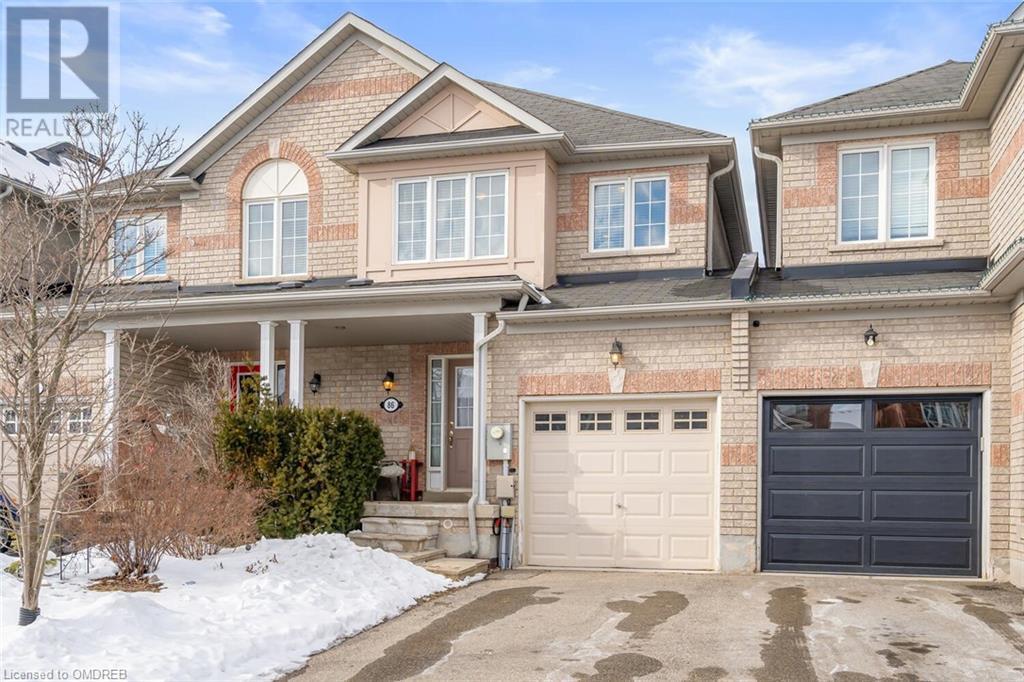
Key Takeaways
– Capital gains tax is a tax on the profit you make from the sale of a property.
– The taxable profit is 50% of the equity.
– You can exclude the taxable profit if you sell your primary residence.
– You have to designate the new property as your primary residence, which requires living for a year in the property.
– If you do not designate, you will have to pay tax on the profit made from selling the original house.
– Always consult with a real estate agent and an accountant to discuss your options and implications to maximize your profits.
Conclusion
The increasing real estate prices are a clear indication of Milton‘s appeal to homebuyers. However, the changing tax system may have implications for those buying and selling property. Understanding the tax implications of moving up to a bigger house involves consulting with a real estate agent and an accountant to secure the best outcome.
It is essential to know that with the right guidance, up-sizing to a new home in Milton can maximize your profits. We at SousaSells.ca are here to help you navigate the real estate market better. Together, let’s make your dream home a reality!
FAQs:
What is Capital Gains Tax?
Capital Gains Tax is calculated on the profit you make when selling a property. The profit is calculated as the difference between the cost and the sale price of your property.
Can you exclude the taxable profit when selling your primary residence?
Yes, you can apply for the principal residence exemption with the CRA when selling your primary residence.
Can you up-size to a bigger house without paying tax on the profit?
If you designate your new property as your primary residence after living in it for a year, you can avoid paying tax on the profit made from the sale of the previous property.
Are there special tax implications for first-time homebuyers?
First-time homebuyers are permitted a refund on the tax paid on any portion of the purchase price below $500,000.
How do I calculate Capital Gains Tax?
You take the selling price of your home and subtract the cost of purchase plus any cost of improvements. This amount is your capital gain. You then multiply the capital gain by 50% and include this amount in your income as a taxable capital gain.
You maybe interested in
- Maximizing Your Profits and Minimizing Stress: How a Real Estate Agent Can Help Sell Your Rockwood, ON Home During Divorce or Separation in 2023
- Burlington Real Estate 2023: Maximizing Profit through Strategic Up-sizing Sale Timing
- Selling Home in Milton During Divorce? Know the Tax Implications (2023)


